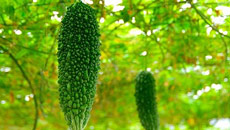In a thrilling discovery, paleontologists have unearthed the earliest ancestor of land-dwelling plant eaters: The striking point is that these tiny animals were once meat lovers who evolved into herbivores.
“The evolution of herbivory was revolutionary to life on land because it meant terrestrial vertebrates could directly access the vast resources provided by terrestrial plants,” Robert Reisz, a professor from University of Toronto Mississauga, was quoted as saying.
These herbivores, in turn, became a major food resource for large land predators, he added.
The vegetarian ancestor has been named Eocasea martinis. Eocasea is one of the oldest relatives of modern mammals.
The scientists found its 6.5 inches long skeleton that belonged to a juvenile who lived in what is now Kansas 300 million years ago.
That is about 80 million years before the dinosaur age.
The researchers think the prehistoric animal feasted on insects and other small animals.
According to Reisz, “Eocasea is the first animal to start the process that has resulted in a terrestrial ecosystem with many plant eaters supporting fewer and fewer top predators”.





